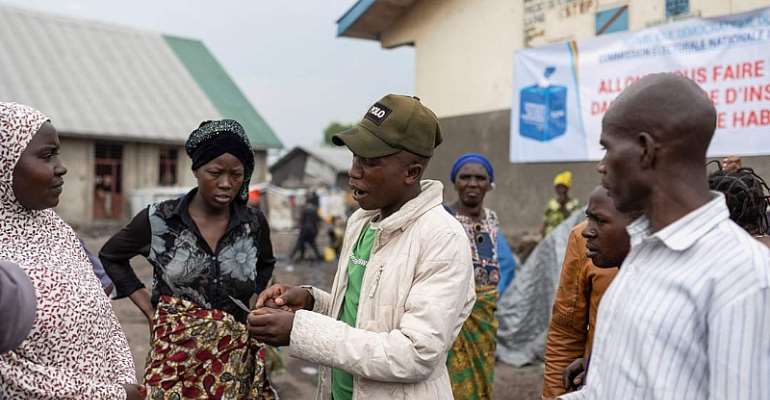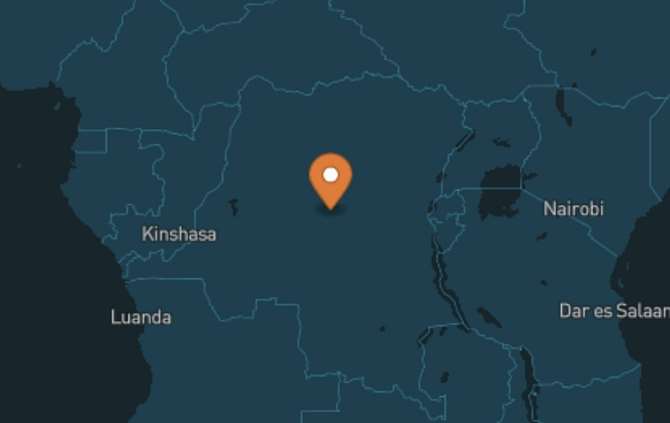Elections In DR Congo: Reducing The Risk Of Violence

There are many risks looming over the next electoral cycle in the Democratic Republic of Congo. To mitigate these risks, the government should ensure that all parties can campaign freely, and African and Western powers should encourage the parties to find compromises and prepare for mediation in case it is needed.
Executive Summary
The Democratic Republic of Congo (DRC) is heading for elections in December 2023 and throughout 2024 in perilous conditions. Fighting in the east and other areas has left more than a million citizens without voter cards. The opposition, faced with increased government repression and a National Independent Electoral Commission (Ceni) that they see as biased in favour of the ruling party, is tempted to reject each step. Meanwhile, the risk of localised violence is high. A close or contested presidential result could also lead to a national crisis, as it did in 2018. To mitigate these risks, the government should make sure all parties can campaign free of intimidation and unwarranted restrictions. It should ensure the Ceni, which itself must pay its staff and fight against the extortion of voters, is adequately funded. Outside actors, notably African and Western powers, should encourage politicians to compromise, call out abuses, continue to support domestic poll observers and prepare for mediation in case it is needed.
As the race enters its final stretch, President Félix Tshisekedi suffers from some weaknesses, but nevertheless is in a strong position to be re-elected. His record in office is hardly gleaming, as security has deteriorated in several areas and the country’s mineral boom has failed to improve the lives of the average citizens. Recently, he nevertheless strengthened his position by adding several political heavyweights to his coalition. The opposition, on the other hand, hopes to capitalise on Tshisekedi’s poor record, especially on security. But it is fragmented and faces considerable obstacles, not least of which is how to campaign in this vast country with extremely poor infrastructure. Meanwhile, there are few signs that, for the presidential elections, opposition leaders will agree to limit the number of presidential candidates and thereby reduce the risk of seeing their vote fracturing.
The consensus required for elections to run smoothly is sorely lacking.
Political tensions are rising. Preparations for the polls have included controversies and missed opportunities for improvement, and even now the Ceni faces considerable logistical and political challenges. Throughout, the Ceni and the government have shown little regard for the need for transparency and failed to engage seriously with civil society observer missions, meaning the consensus required for elections to run smoothly is sorely lacking. Voter registration was imperfect, but more importantly, fighting between the armed forces and the 23 March Movement (M23) insurgent group in North Kivu and problems of insecurity elsewhere have left more than a million citizens without voter cards. Renewed clashes at the start of October between the M23 and the army and government-aligned groups has raised fears that even those with voter cards may not be able to vote due to insecurity. In many areas, electoral officials appear to have blocked people from registration on spurious grounds or extorted money from them in return for registration.
Meanwhile, the authorities have maintained a “state of siege” (a form of martial law) in two eastern provinces and are suppressing demonstrations and meetings elsewhere – limiting freedoms necessary for a peaceful campaign. On 12 October, President Tshisekedi announced a partial lifting of the state of siege, but respect for political freedoms remains a concern in the heavily militarised eastern provinces.
These problems create multiple risks of unrest over the electoral period and increase the chances of a contested result. On 30 August, troops from the Republican Guard massacred more than 50 civilians preparing for a protest, demonstrating the acute risks of abuses by the security forces when election campaigning gets underway. Other risks include clashes between party supporters; an uptick in attacks by armed groups in the east and around Kinshasa; and violent disputes at polling stations if officials refuse voters their rights or force them to pay to cast their ballot. In addition, there is a strong risk of electoral tensions spilling over into clashes between rival communities already at loggerheads over issues such as local leadership, land use and access to mining sites. All these risks are heightened by irresponsible inflammatory language both on- and offline.
If losing parties or their backers do not accept the results, then a wider political crisis could develop, which could be severely exacerbated if fighting continues or worsens in the east. In short, a poorly run election with so many citizens excluded from voting would be a huge setback for the DRC’s effort to chart a more democratic future and, in the long-term, a path out of poverty and war. A wider crisis over the elections’ outcome is by no means inevitable. But if it occurred, rivalrous neighbours and regional actors might not be able to step in to mediate or otherwise find a solution. Many are engaged in fighting armed groups in eastern DRC with minimal coordination or even shared understanding of the goals of their operations. Indeed, some have a long history of backing some groups as a means to extend their own influence in the country.
The main actors, and particularly the government and the Ceni, can take some key actions to reduce the chances of either localised violence or a wider crisis.
The government must keep its security forces in check in order to allow for all parties to campaign. It should minimise restrictions on political meetings, while party leaders should call on their supporters to not use violence during protests. Both government and opposition must call out inflammatory language online or in campaign meetings.
The government should shore up confidence in the security forces, by ensuring regional balance in the wave of recruitment currently underway, thus addressing worries about impartiality.
Following the partial lifting of the state of siege in North Kivu and Ituri provinces, authorities must be particularly vigilant to ensure respect for political freedoms in these areas during the electoral period.
The government should make sure the Ceni is adequately financed. The Ceni should prioritise budget transparency to maintain public trust and ensure that its staff are paid and sanction any attempts to extort voters.
International actors, starting with African powers who have influence in Kinshasa, and also Western powers, should encourage the government and opposition to reach compromises on the issues above and stand ready to offer mediation in the event of contested results. They should continue to support domestic election observer groups.
Brussels/Nairobi, 30 October 2023

